Introducing Architectural Elements Into Your Home Interior
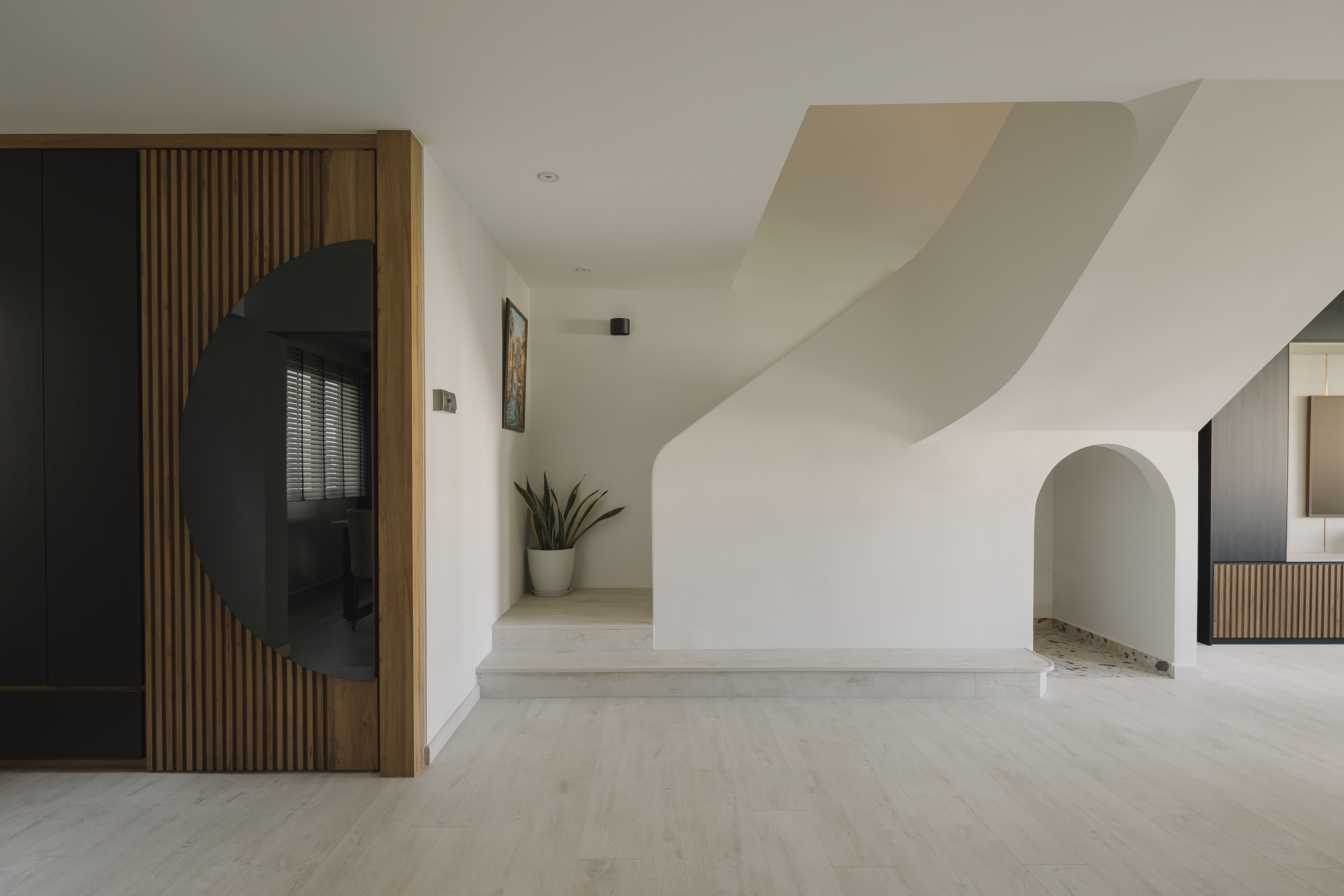
In the realm of interior design, architectural elements serve as the foundation upon which captivating spaces are built. From soaring archways to intricate moldings, incorporating architectural features into home interiors adds depth, character, and a sense of grandeur. In this article, we explore the art of integrating architectural elements into residential spaces to elevate their aesthetic appeal and imbue them with a timeless charm.
Embracing Structural Details

As seen in this Executive Maisonette, the curved staircase design serves as the most unique feature of the home. It instantly creates visual interest and stirs a conversation amongst guests. Additionally, a kids’ reading corner underneath the staircase allows the homeowners to fully maximise the space. Embrace these inherent features by highlighting them with strategic lighting, emphasizing their natural textures, and incorporating complementary design elements.
Check out the full home tour here.
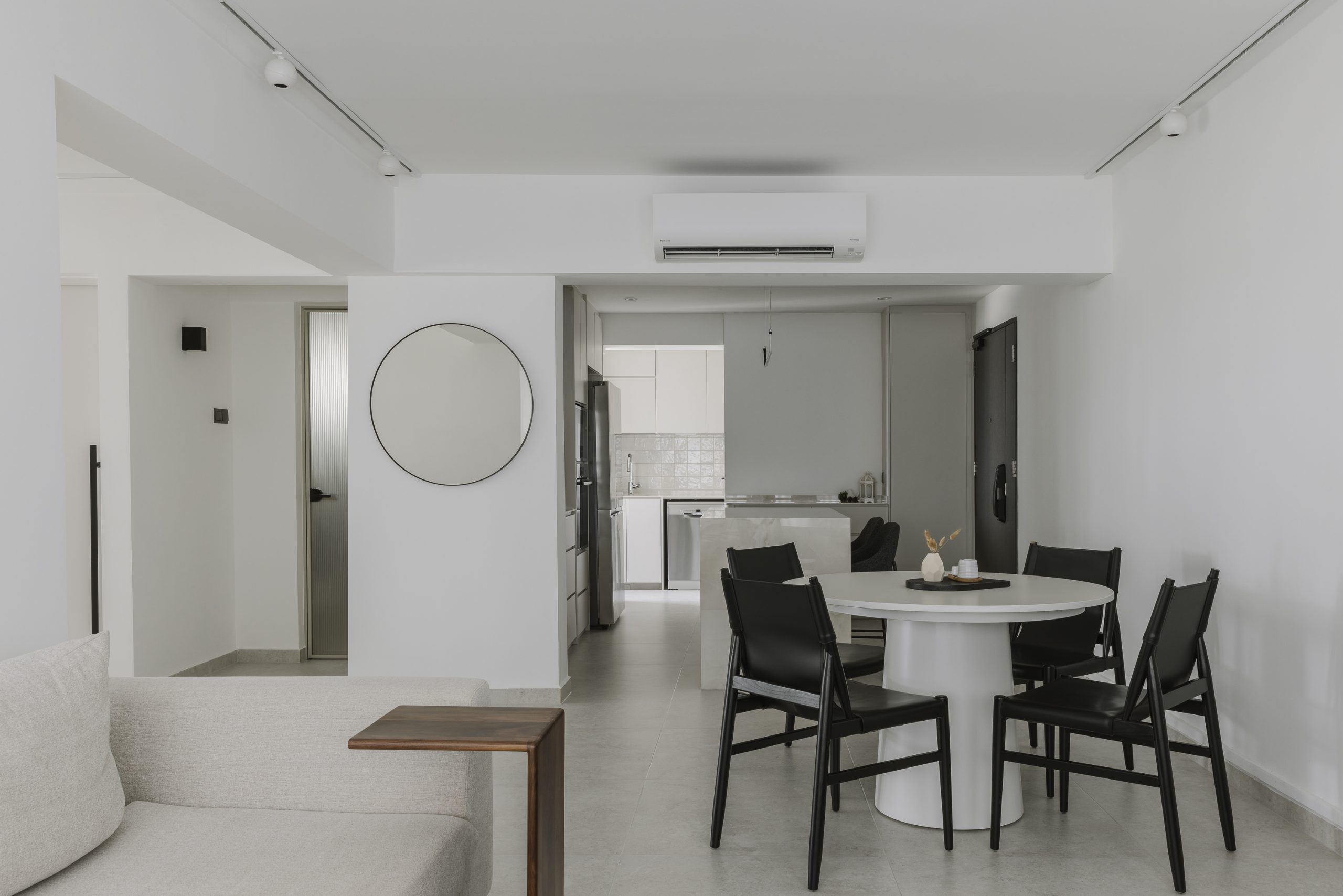
The simplicity of structural beams complements the clean lines and understated elegance of minimalist furnishings. By serving as a backdrop for minimalist furniture pieces, such as sleek sofas, streamlined tables, and minimalist lighting fixtures, beams create a cohesive and unified aesthetic that reinforces the minimalist design concept.
Accentuating Arches & Windows
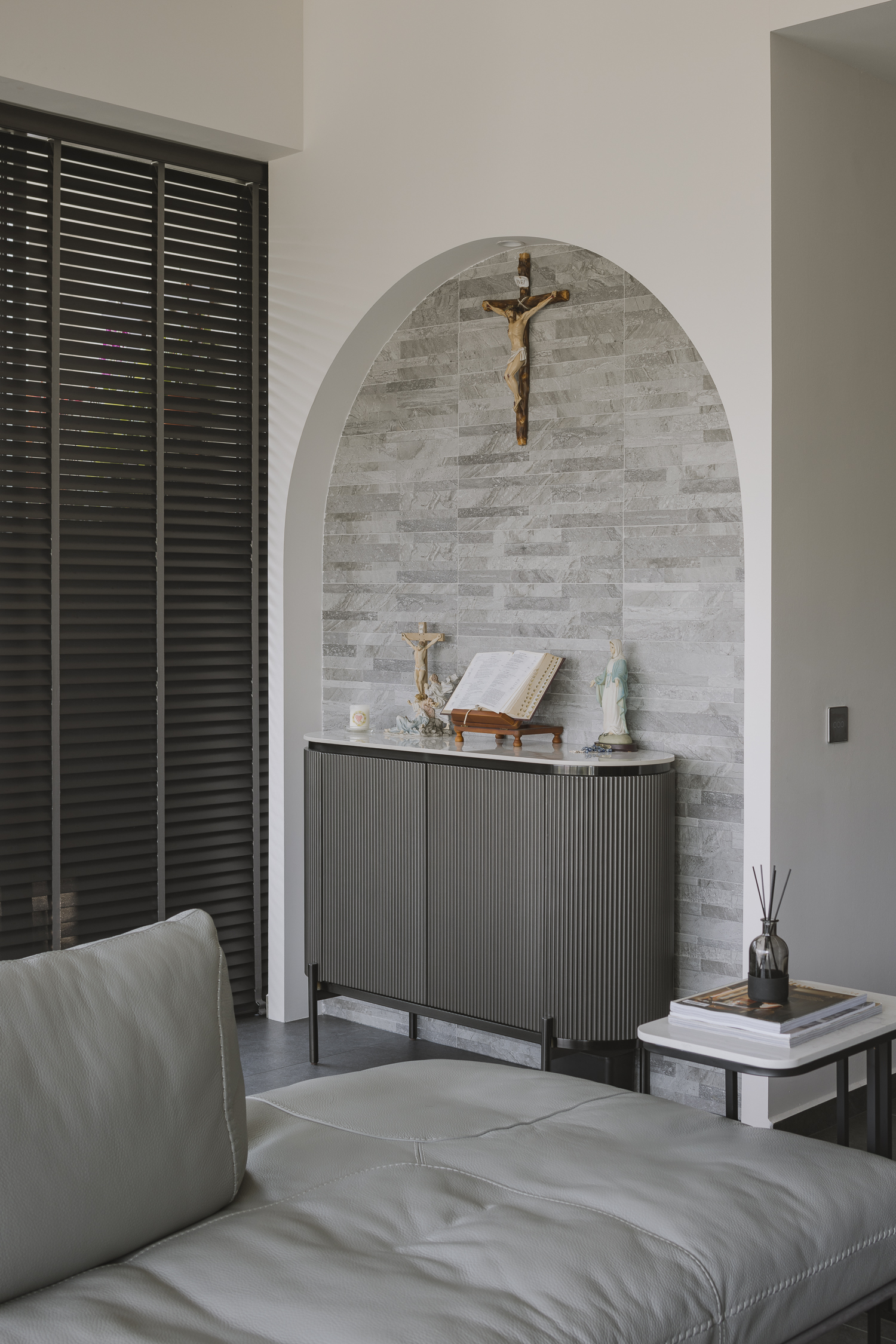
Arches serve as captivating focal points that add architectural interest and visual appeal to interior spaces. Whether they are doorways, windows, or architectural niches, arches introduce a sense of grandeur and elegance that enhances the overall aesthetic of the home. By incorporating arches into interior design, homeowners can evoke a sense of historical charm and timeless elegance that adds character and personality to their living spaces.
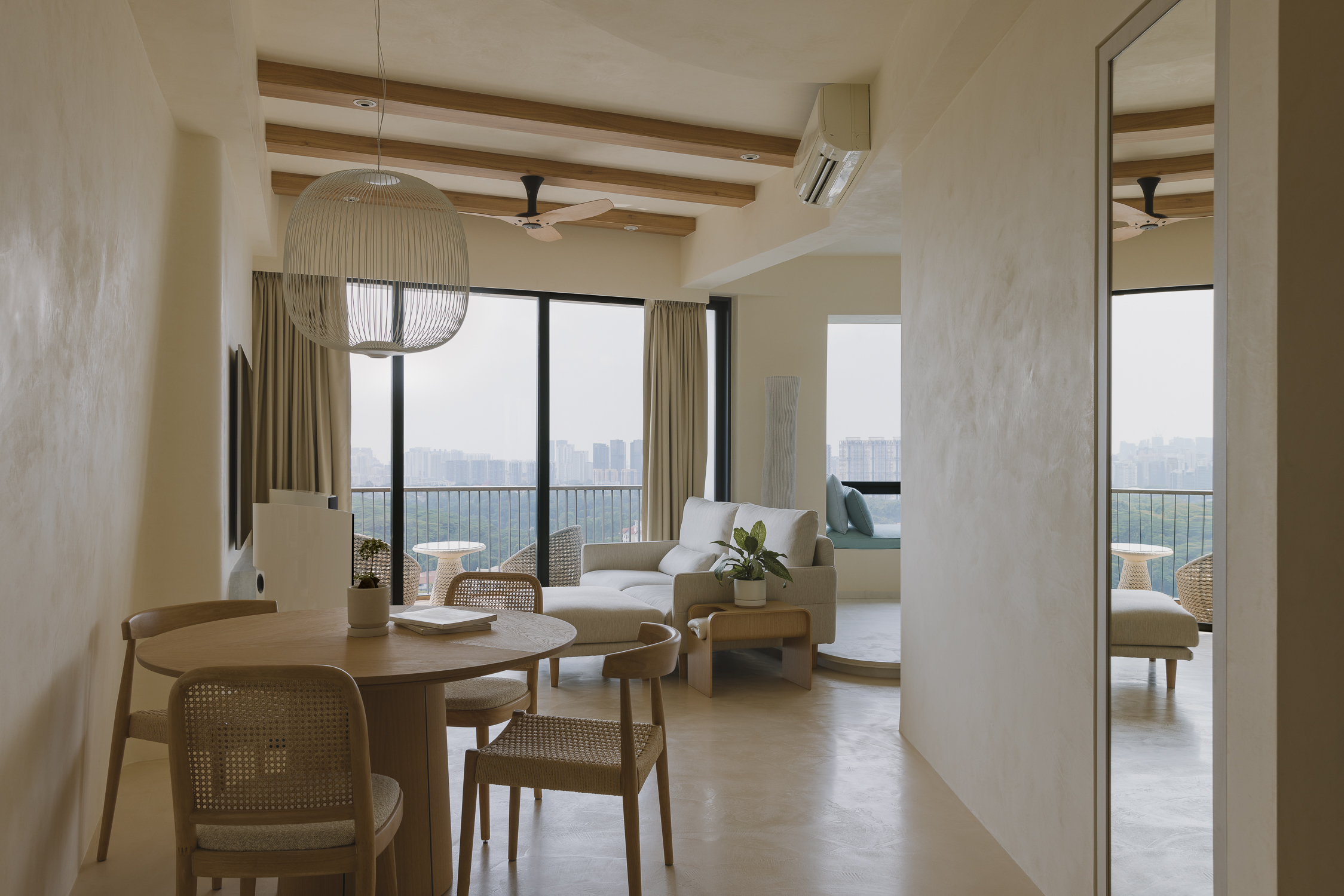
In this captivating Mediterranean Japandi home that is in a condo building designed by internationally-renowned Architect, Zaha Hadid, the unique structure of the building greatly influences the interior designers’ design conceptualisation. The use of faux wooden beams and curved ceiling elevates the entirety of the communal space. Embracing the natural light from the extensive windows and balcony effortlessly creates a light and airy atmosphere.
Enhancing With Crown Molding & Trim
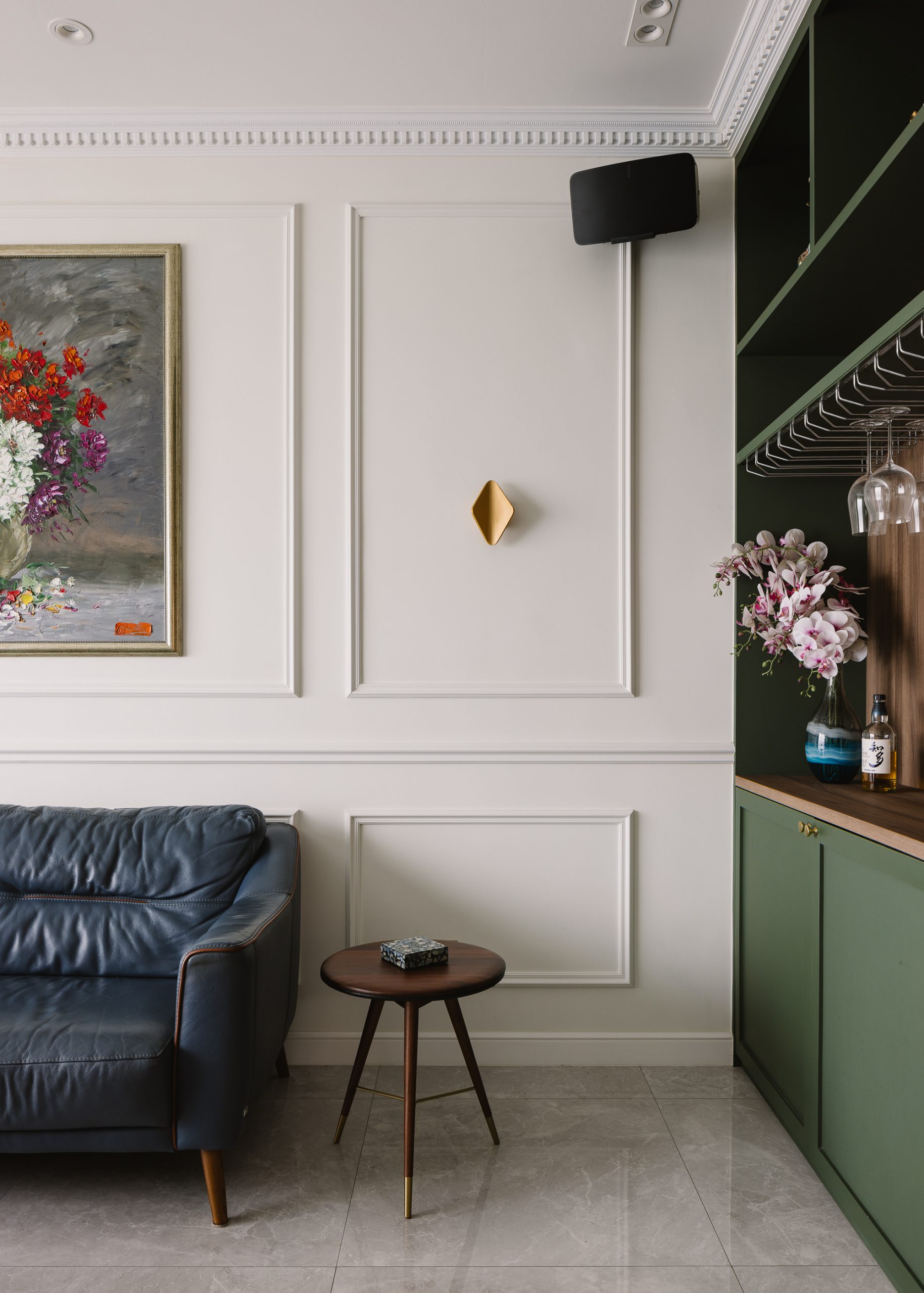
Crown molding and trimwork are classic architectural elements that add refinement to any interior. Install crown molding along the ceiling to create visual interest and define the transition between walls and ceiling. Similarly, incorporate wainscoting adds depth and dimension to walls, elevating the overall aesthetic appeal of the room. Whether used as a decorative accent or a functional element, wainscoting adds character, charm, and sophistication to home interiors, making it a popular choice among homeowners and designers alike.
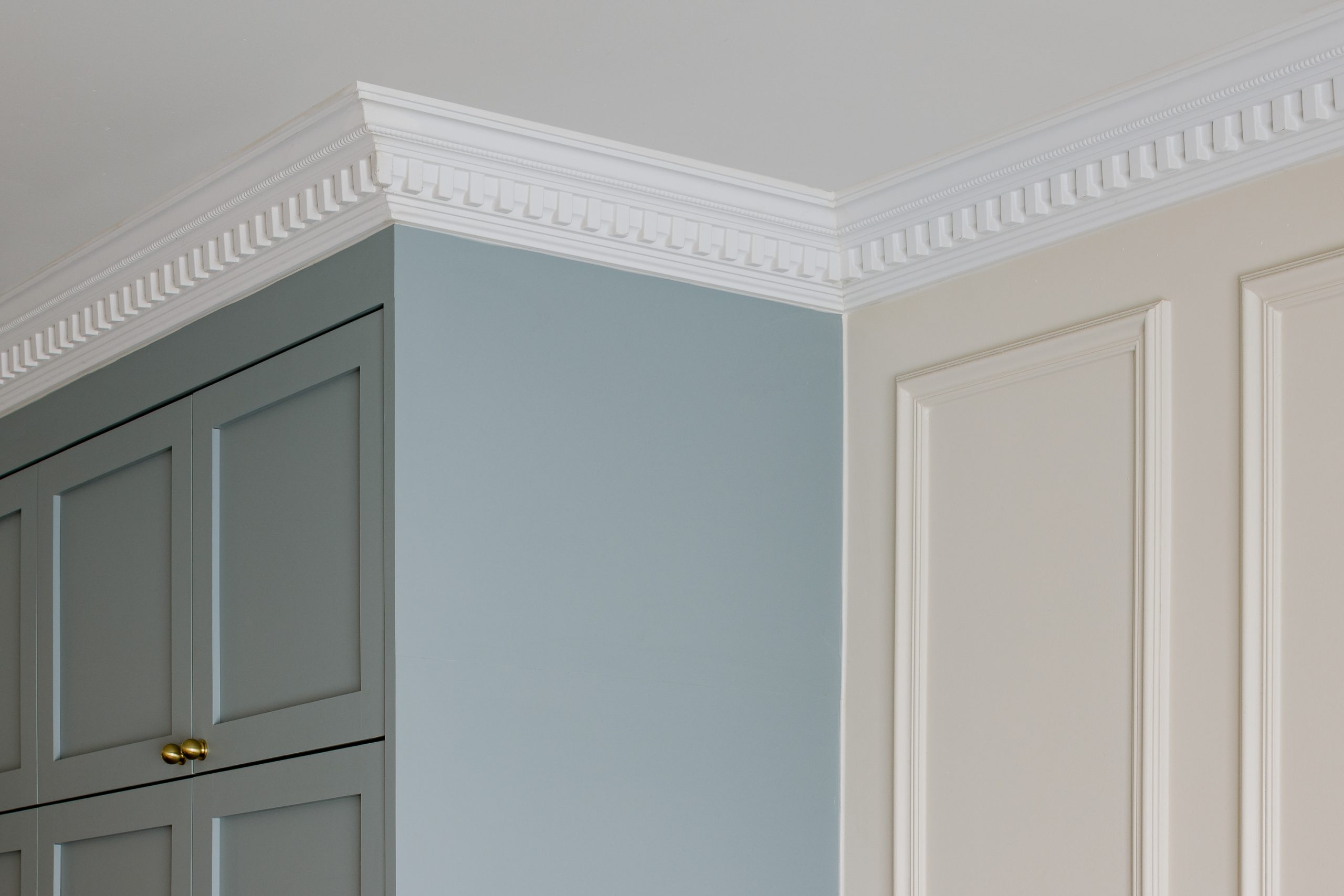
Cornices come in a variety of materials, profiles, and finishes, offering endless design possibilities to suit different architectural styles and interior aesthetics. Whether ornate plasterwork, simple wood molding, or modern metal trim, there’s a cornice option to complement any design scheme.
Creating Visual Interest with Ceiling Design
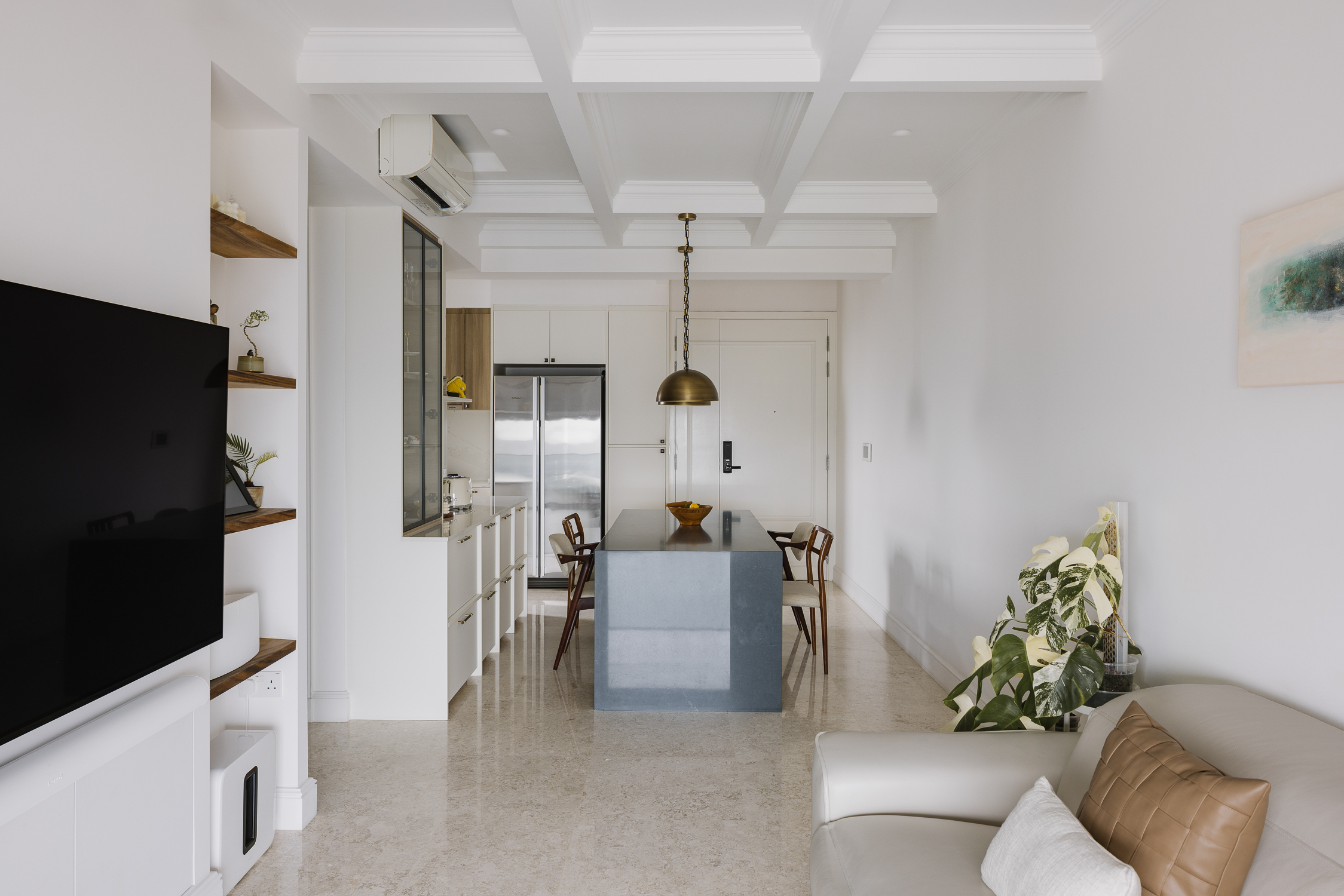
From contemporary touches to a myriad of natural materials, the Modern Colonial home interior design of this refined dwelling strikes the perfect balance between traditional charms and sophistication. Coffered ceilings have a long history dating back to ancient Greek and Roman architecture. The recessed panels and beams create a sense of depth and dimension, transforming an ordinary ceiling into a visually striking feature that enhances the overall aesthetic appeal of the space. The recessed panels and beams of a coffered ceiling can help to improve acoustics within the room. The depth and texture of the ceiling surfaces help to diffuse sound waves and reduce echoes, creating a more balanced and pleasant auditory experience.
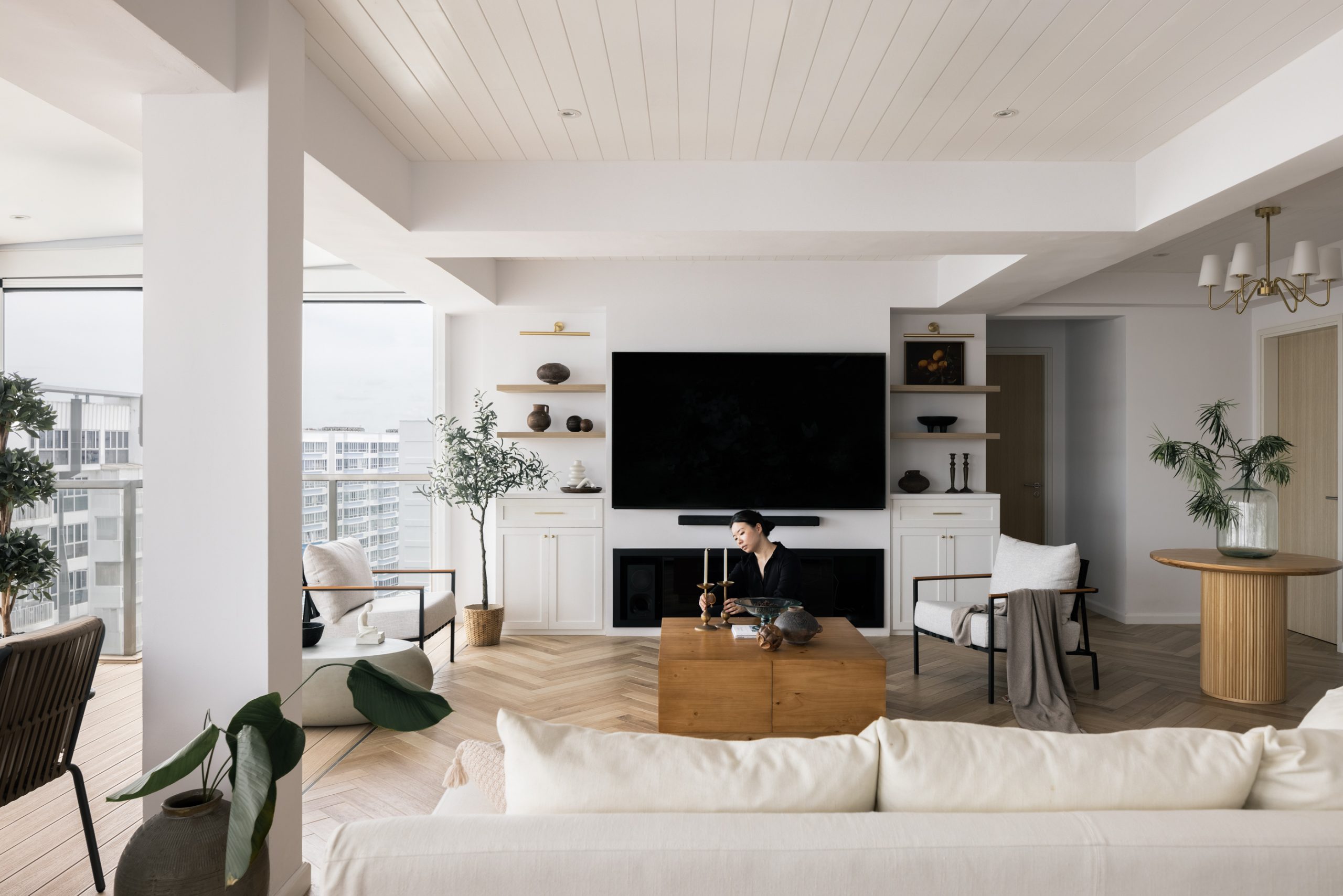
Shiplap ceilings are highly versatile and can be used in various interior styles, from traditional to contemporary. Whether stained for a rich, dark finish or painted for a crisp, clean look, shiplap ceilings can be customized to suit different design preferences and colour schemes. The timeless appeal and versatility of shiplap design in this Modern Farmhouse make it an attractive selling point for potential buyers, increasing the overall appeal and marketability of the property.
Architectural elements can be used to delineate and define different areas within a room or between rooms. Whether it’s a coffered ceiling that separates the living and dining areas, a decorative archway that marks the entrance to a hallway, or a series of columns that frame a sitting area, these elements help to establish a sense of structure and organization within the home. Whether used to enhance visual appeal, define spaces, evoke cultural significance or increase property value, architectural elements play a vital role in shaping the character and ambiance of residential spaces. Introducing these classic elements in the home interior creates an environment that is both beautiful and functional for homeowners to enjoy.
CONSULT OUR DESIGNER
- 11 April 2025 TIPS & GUIDES
Wet and Dry Kitchens in Singapore Homes: What Are They And Do You Need Both?
- 8 April 2025 TIPS & GUIDES
How to Mix Scandinavian & Asian Elements for a Unique Look
- 8 April 2025 TIPS & GUIDES
The Golden Ratio in Interior Design: Balance Your Singapore Home
- 8 April 2025 TIPS & GUIDES
Transform Your HDB with Modern Luxury Interior Design
- 8 April 2025 TIPS & GUIDES
How to Blend Traditional Elegance with Modern Luxury Design
- 28 March 2025 TIPS & GUIDES
Biophilic Interior Design: Beyond The Aesthetics






 BACK TO BLOG
BACK TO BLOG